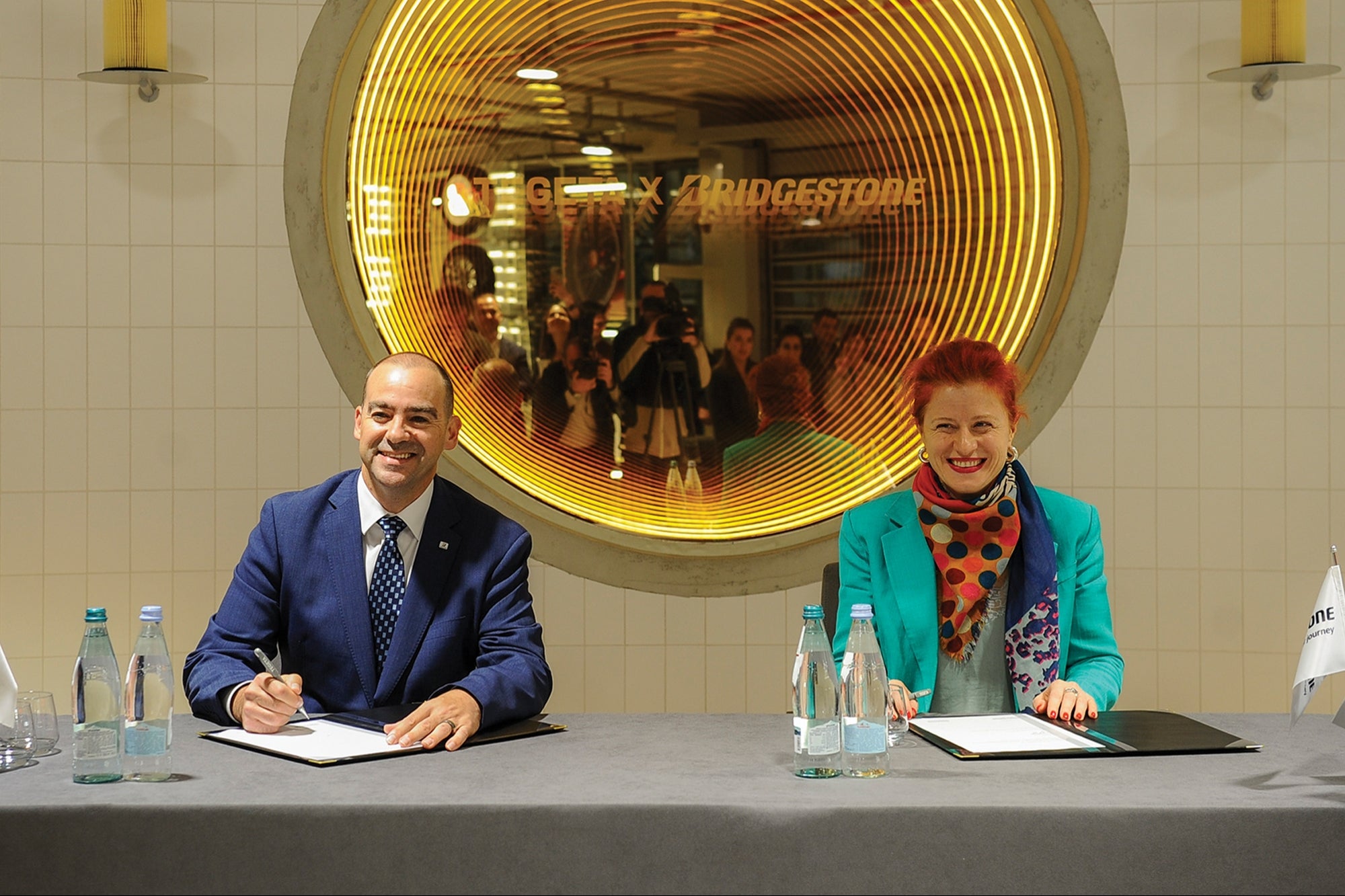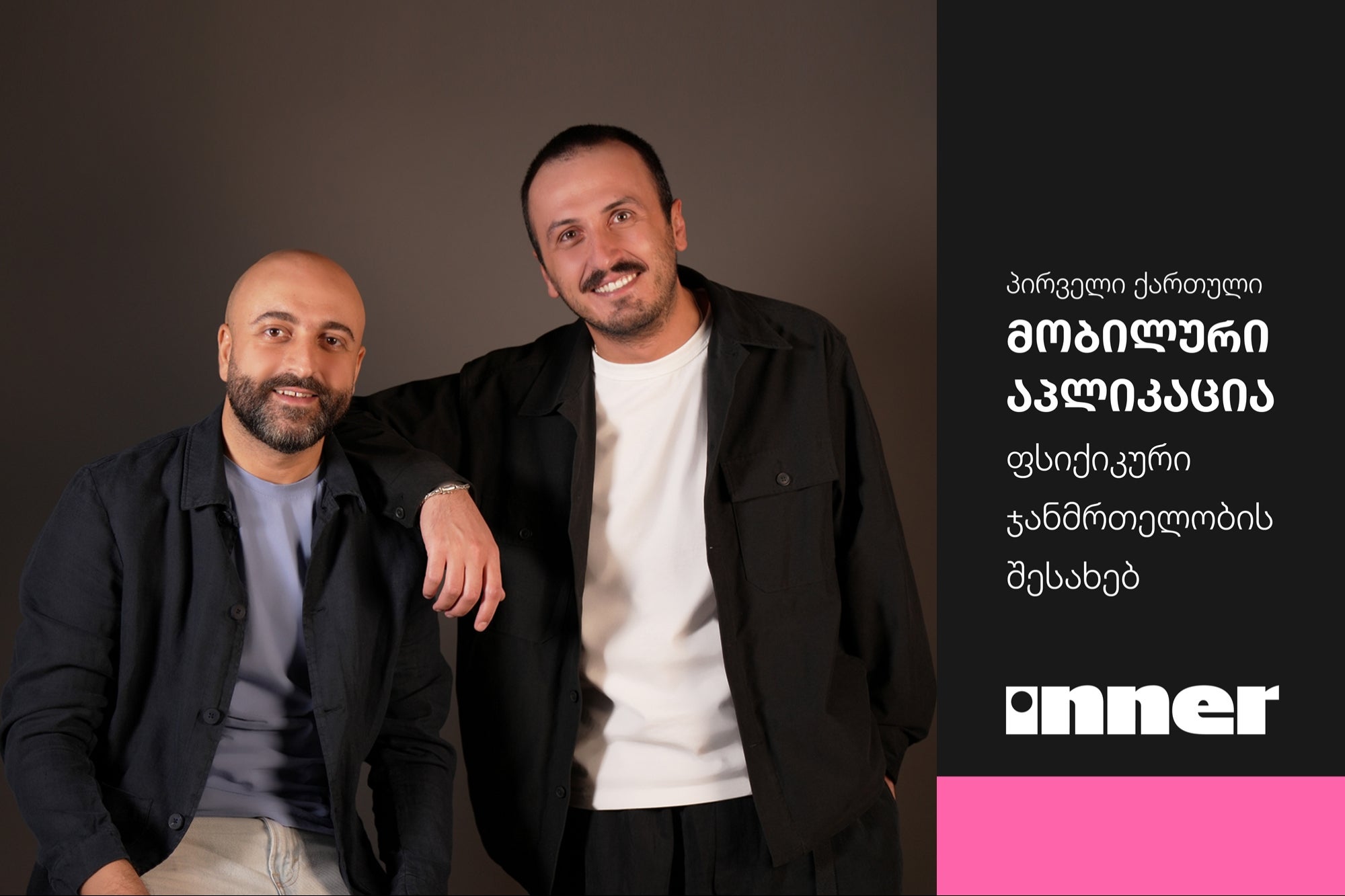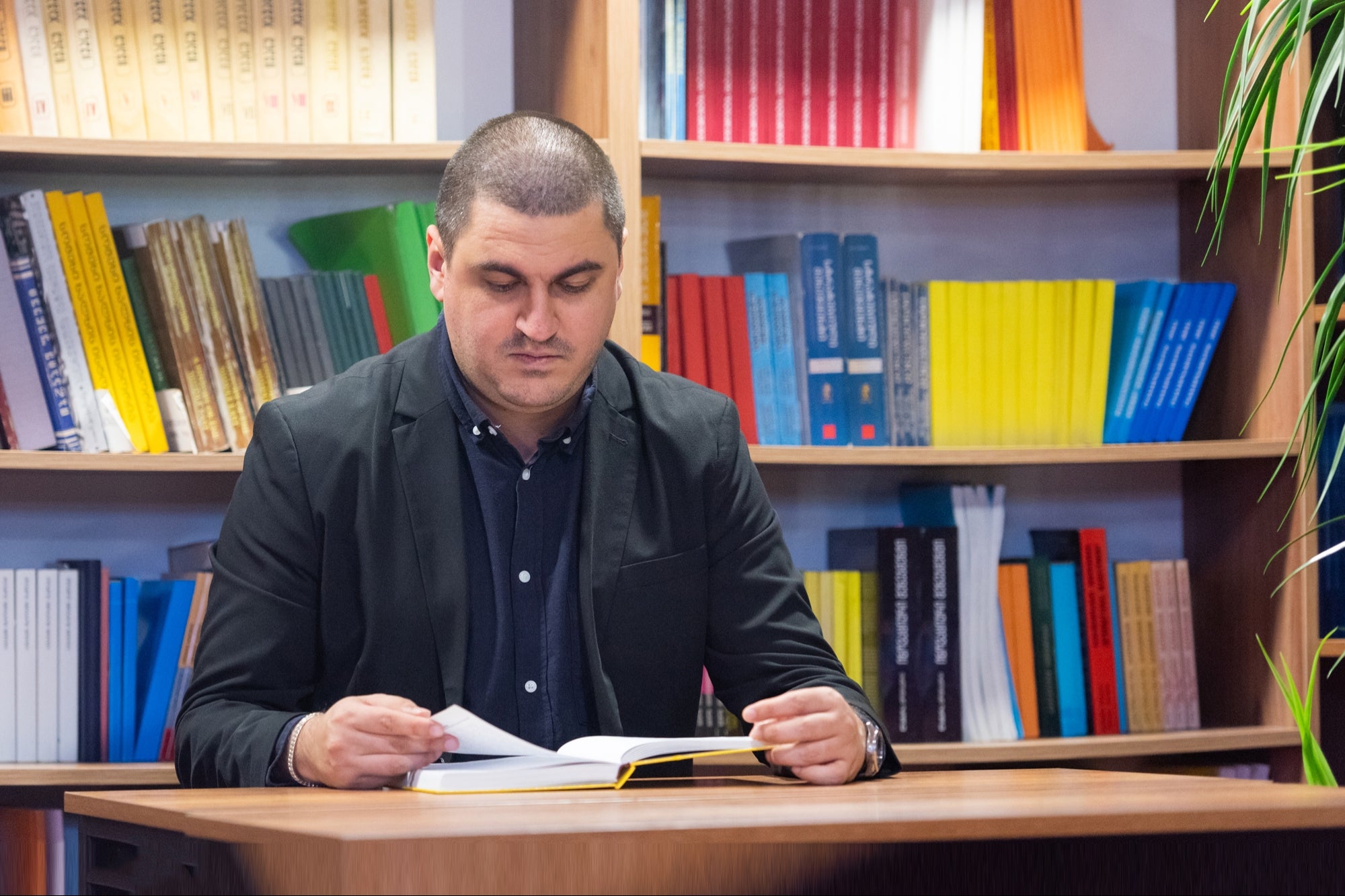TAV Georgia – The Georgian story of a global brand Interview with TAV GEORGIA's General Manager Tea Zakaradze
By თეკლა ადამია
Opinions expressed by Entrepreneur contributors are their own.
You're reading Entrepreneur Georgia, an international franchise of Entrepreneur Media.

TAV Georgia, a subsidiary of TAV Airports Holding, has managed the Tbilisi and Batumi international airports since 2005. That cooperation, based on the current contract, is set to continue until the end of 2027.
TAV Airports Holding and partner companies are represented in 108 airports in 29 countries. It is the largest airport management brand globally, and is a member of the group ADP -Aéroports de Paris. ADP Group itself manages and operates more than 20 airports on different continents and is renowned for qualified services and sustainable development. In May 2012, ADP Group became the main shareholder of TAV Airports.
It is worth noting that Georgia was TAV Airports' first foreign investment. Since entering the Georgian market, the company has invested over 220 million US dollars and acquired 350 million GEL of assets in the country – specifically, in Tbilisi and Batumi.
TAV Georgia is one of the most significant contributors to the state budget - a contribution which exceeds 400 million GEL. In addition, the company employs about 1,500 people in the international airports of Tbilisi and Batumi, and each of them is a valuable and qualified staff member in the aviation field.

"We are one of the largest and, simultaneously, one of the most loyal and responsible employers in Georgia. We did not lay off any employees during the pandemic: we retained almost all our staff, even though the aviation industry was the hardest hit by COVID-19. Further, we are one of the few employers who steadily increase their employees' salaries on an annual basis," - notes Tea Zakaradze, General Manager of TAV Georgia.
Tea Zakaradze is TAV's first Georgian and first female manager, and for 18 years prior to taking on the role, she held various positions in TAV Georgia; since 2021, in top management. Entrepreneur sat down with her to find out more about TAV Georgia's activities and investment in the country so far.

A little about TAV Airports Holding
In addition to Georgia, TAV Airports Holding manages 108 airports in 29 countries, including Turkey, Tunisia, Macedonia, Croatia, France, Saudi Arabia, and Kazakhstan. There are only a few large companies in the airport management industry globally. With TAV Airports, there are French - ADP Group and VINCI Group, German - Fraport, Dutch - Royal Schiphol Group, and Indian - GMR-Group. TAV Airports actively cooperates with each company directly or through the ADP group, making it a global brand and facilitating operations in those markets.
Today, besides operating airports, TAV Airports unites other subsidiaries vital to the aviation industry under its umbrella, among them TAV Technologies, which provides IT services to airports and is represented in 50 airports independently.
In addition, TAV Airports Holding's terminals offer customers various services, such as catering, shopping facilities, and Duty-Free shops. The company's subsidiary brand, ATU DUTY-FREE, is a partner of the German UNIFREE, one of the largest European operators of Duty-Free stores. TAV Operation Services is another subsidiary brand of the company, which manages about 90 lounges and VIP terminals in 20 countries, including the United States of America, Washington, and New York Kennedy airports. Negotiations are underway to expand the services into 15 additional US airports.

What projects does TAV Georgia implement in Georgia?
A long-term development plan for Tbilisi and Batumi international airports was prepared by one of the leading expert and consulting companies in airport planning, ADP Ingénierie (ADPI), on the order of TAV Georgia.
Exciting news is that TAV Georgia is actively working on implementing the ISAGO program. ISAGO is an international system of the International Air Transport Association (IATA), which is based on the principles of quality audit recognized in the aviation field. It aims to improve the safety of aircraft ground services at airports.
Implementing appropriate management systems and operational procedures in TAV Airports and accepting the ISAGO certificate will ensure the highest level of ground services available at the airport and, subsequently, lead to the unconditional trust of the airlines and airports.
"I can say with assurance that TAV Georgia has created the latest stage of development of Georgian aviation, brought international experience to the field of airport services, and raised highly qualified professionals, which is the most critical asset for the company and the country in general. In 2025, we will celebrate the 20th anniversary of our activity in Georgia, and we are proud to be one of the most loyal partners, reliable investors, and largest employers. Today, a team of Georgian professionals stands behind this global brand - a team that I am most proud of," Zakaradze notes.
Since 2005, TAV Georgia has implemented several important projects providing comfort and improved services to passengers and airlines in Tbilisi and Batumi international airports.
As a result of the 220 million USD investment made by TAV Airports in Georgia, new passenger terminals opened in 2007 in both Tbilisi and Batumi international airports. The investment in 2016-2017 completed the total rehabilitation of the existing runway, and a new flight terminal was built at Tbilisi International Airport.
Furthermore, to improve passenger flow and reduce queues, the number of border desks was increased and moved to the departure area of Tbilisi International Airport, significantly expanding the passport control area.
The investment allocated for the mentioned project exceeds 350 thousand GEL. The project also covered a passenger seating update and the entire replacement of carpets in the passenger bridges.
The latest version of the global passenger registration system - CUPPS, a combination of various services that ensures the improvement of the quality of service for both passengers and airlines, was introduced in Tbilisi and Batumi international airports.
Several significant investments have been made in upgrading such equipment as passenger buses, new passenger boarding stairs, a de-icing machine for aircraft, and a high loader, which provides services for cargo weighing up to 14 tons. Further, a modern automated parking system has been launched at Tbilisi International Airport.

"Our efforts have been recognized and highly regarded by influential British consulting company Skytrax, the World Airline, and the Airport Star Rating program, which classify airlines and airports by the quality of products and staff service standards. This year, Skytrax ranked Tbilisi International Airport among the top five airports in Eastern Europe, reflecting significant growth in terms of airport quality and service improvement, and emphasizing the particular importance of the infrastructure projects implemented for the development of the airport. Batumi International Airport, under our management, was also among the top ten airports in Eastern Europe. Batumi International Airport was included in this category for the second time, and Tbilisi for the tenth time in a row," - Zakaradze says.
When TAV Georgia took over management of Batumi International Airport, one flight per week was being run, and the annual number of passengers was around 30,000. With the investment made by the company, completely new infrastructure was built in Batumi, including a new passenger terminal, taxiways and a runway.
Initially, Batumi International Airport operated to mainly service Turkish and Georgian passengers. However, after the opening of the Rize airport near the Turkish-Georgian border, Batumi Airport is now wholly focused on the Georgian market and particularly on the Adjara region for leisure and business visits.
"Where Batumi airport was busiest during the summer season for years, we now see an increased number of flights during the winter season as well, with scheduling for an average of 70 flights a week. We continued investing during the pandemic, and in 2021, we completed the new passenger terminal of Batumi Airport. Over these years, we have introduced several other innovations too, including modern IT services, pushback operation and more," - Zakaradze notes.
She rates the possible influence on the passenger flow of Batumi International Airport by the nearby Kutaisi International Airport as "insignificant." Under the management of the United Airports of Georgia, Kutaisi International Airport caters to low-cost airlines and is not considered a direct competitor to Batumi Airport, she says.
"Airports are necessary and important components for a country and its citizens. However, it is difficult for a business to compete with a social project. We do not consider Kutaisi Airport a competitor. In general, airports and airfields are essential for developing aviation in a country. The more airfields and domestic flights there are, the more Georgia's aviation, tourism and economy will ultimately grow. So, we welcome the government's strategy for developing airfields in the country and are ready to support it," - Zakaradze says.
TAV Georgia has invested up to 38 million GEL to develop airport infrastructure alone in the last two years.

What is the current state of airports today?
Georgian airports have primarily returned to the pre-pandemic numbers of passenger flow.
Zakaradze mentioned in her conversation with Entrepreneur that in Tbilisi this summer (June-September), there was a 2% increase in the flow of passengers, and in Batumi an 8% decrease compared to 2019.
"The pandemic was such a big blow to the aviation industry that it took longer than expected to restore the demand to pre-pandemic level. In addition, the current geopolitical situation has had a significant negative impact on it - both the full-scale Russian invasion of Ukraine and the recent events in Israel. Israel and Ukraine were busy destinations, both from Tbilisi and Batumi."
She notes that air travel between India and China has increased with the government's support.
"Both destinations are seen as exciting and new markets for Georgia, so we have high expectations for them."
During the winter navigation season, as a rule, the number of flights tends to reduce. However, TAV Georgia is continuing to negotiate with airlines, meaning we can rightly expect news about the entry of additional airlines to the market next season.
For the airport to be successful and comfortable, Zakaradze says it is necessary to have more direct flights, and only strong local airlines based in Georgia can provide this.

"I have said many times, and I will repeat that we are ready to support local carriers in every possible way with the various resources at our disposal so that they can run as many flights in as many direct directions as possible. Naturally, we will offer the most favorable conditions to any new local player who plans to contribute to the growth and development of Georgian aviation," - Zakaradze notes.
On the new airport in Tbilisi - what are the expectations?
The Georgian government this year announced plans to construct a new airport, with the Vaziani area being considered for the location. Research works are currently underway.
According to TAV Georgia's GM, Tbilisi International Airport is working almost at maximum capacity, and the decision to build a new airport is timely. The master plan of Tbilisi International Airport prepared by ADPI covers the airport's expansion plan in its current location and a detailed cost analysis. After completing the review of the Vaziani area, the government will have the opportunity to compare the advantages and disadvantages of each project and select the best option.
In addition, TAV Georgia has shown its absolute readiness to be involved in the study process, to provide specific consultations, and to share its experience when needed.
"We are ready to actively participate in the study process, to support the government in this regard, to provide consultation, and to share the knowledge and experience we have accumulated during almost 20 years of managing the Tbilisi and Batumi airports. The airport is a strategic facility; its management requires specific knowledge and experience. Of course, modern infrastructure and the latest technologies are the most important; however, in the end, the team creates the overall image of the airport - a professional staff with relevant knowledge, skills, and years of experience," - Zakaradze notes.
What are TAV Georgia's plans?
TAV Georgia's contract expires in 2027, but the company is ready for consultations, negotiations, and investment. Due to TAV's entry into the Georgian market and the investments made so far, modern technologies have been introduced in airports, and the number of highly qualified personnel increased, which is not only the company's wealth but also the country's.
As Zakaradze notes, sometimes there are misconceptions in society that, since TAV Georgia is a foreign company, its employees must be foreign citizens.
In fact, most TAV employees are Georgian citizens, and around 1% of ex-pats working for the company are consultants who transfer specific knowledge and expertise. From an employment point of view, special attention is paid to gender balance in the company, and in recent years, the number of women employed at TAV airports has been increasing.
Currently, TAV continues to operate as usual, negotiating the implementation of new airport services, and focusing on offering passengers constant innovative solutions.
"We are doing and will continue to do everything to ensure the airports' smooth working, and to offer high-quality service to passengers. We will spare no effort to maintain that quality and keep passengers happy.
"The airport, seen from the eyes of a passenger, is entirely different. The aviation industry is seen as much more interesting, multifaceted, and complex when you are a part of it all. This is an awe-inspiring journey, full of constant discoveries and excitement," - Zakaradze notes.










